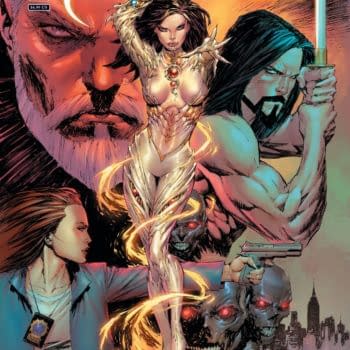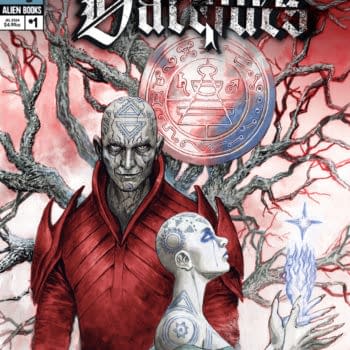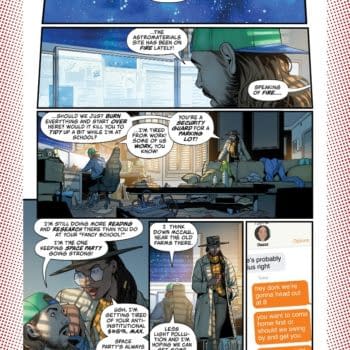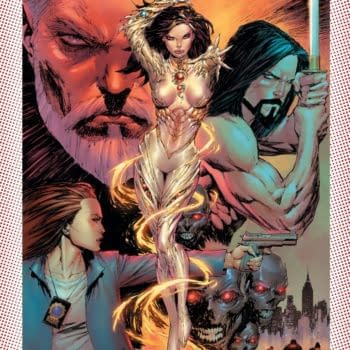Posted in: Comics, Manga, Review | Tagged: anime, light novel, manga, Rascal Does Not Dream Of Bunny Girl Senpai, Yen Press
Rascal Does Not Dream of Bunny Girl Senpai Manga Improves on the Novel
Yen Press has published the manga adaptation of Hajime Kamoshida's bestselling romantic comedy light novel Rascal Does Not Dream of Bunny Girl Senpai, which also got a globally popular anime adaptation. The Yen Press omnibus edition combines both tankubon editions, so the complete first story arc is collected in one book, which is a good thing.

High school student Sukata Azusugawa sees something you don't see every day in the school library, a girl in a bunny suit out of Playboy. And it's not just any girl; it's Mai Sakurajima, a minor celebrity in his school. A former child star from TV, she's now walking around in a bunny outfit, and he's the only one who sees her. That's the meet-cute for the start of their romantic comedy. Sukata discovers that Mai is slowly, literally disappearing. People literally can't see or remember her, like she's being erased from history and memory. That's why she could mess around like go into public in a Playboy bunny outfit, but the issue is more serious than that. He decides to solve the mystery and save her from vanishing from the world completely.
Sukata enlists the help of his Science geek classmate Rio Futaba, who gives him theories about Schrodinger's Cat and various supernatural phenomena. Sukata coins Mai's problem "Adolescent Syndrome," a supernatural affliction that affects high school girls based on their emotional issues. Mai's problem stems from her going from a celebrity early in life to anonymity in her teenage years. Sukata's younger sister suffers from her version of Adolescent Syndrome after getting bullied at school and now stays home as an agoraphobic. As Sukata tries to figure out how to stop the cool and aloof Mai's ailment, he also falls in love with her, which makes his mission increasingly personal.
Rascal Does Not Dream of Bunny Girl Senpai has one of the longest and most obtusely contrived titles out there. Light novels in Japan, their designation for Young Adult novels, can get away with long, convoluted titles that manga and anime never could. But light novels have become so popular now that they often get manga and anime adaptations that make them even more popular than before.
The story has some dubious gender politics, which are, unfortunately, not untypical for Japan. The main character is kind of a sexist jerk, but nearly every female character in the story likes him. That's the common fantasy of light novels that set out to cater to a male audience. This series is purportedly popular amongst female readers as well, because the female characters constantly call out the hero for his crap and he has to learn to be less selfish before he can open himself up for love. The manga makes Sukata a slightly less awful guy than he is in the anime and the light novel, and thus more sympathetic. I suspect that's an editor's note. Manga artist Tsugumi Nanamiya also adapts original character designer Keiji Mizoguchi's work seamlessly, so fans don't feel any deviation or disconnect from the way they look in the art from the light novel. The art still features male gaze fanservice, since that's the target audience. That said, the manga doesn't have the limits of prose or the budget limitations of anime, so it can take its time with showing the nuances and character moments. As a result, Sukata and Mai's story arc feel more complete and satisfying than the novel or manga version. It's one of those instances where the manga adaptation might be the best version of the story.














